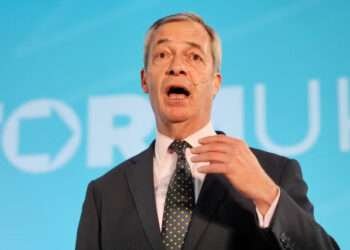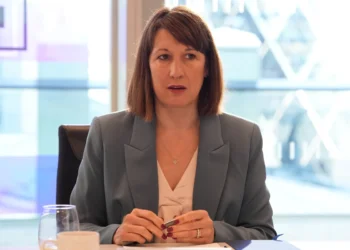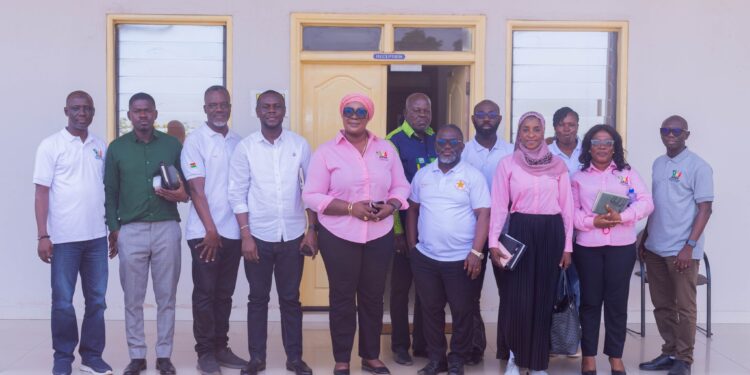Rachel Reeves, Labour’s shadow chancellor, has committed to maintaining a steady tax policy, pledging no new tax measures beyond those already disclosed if Labour wins the upcoming election.
Reeves assured voters there would be no unexpected fiscal policies during Labour’s campaign, with the party explicitly ruling out increases to income tax, national insurance, corporation tax, or any form of wealth tax.
In a major campaign speech, Reeves reiterated Labour’s commitment to transparency that all tax measures needed to fund the party’s current promises have been announced.
“There are no additional tax rises needed beyond the ones that I’ve said,” she emphasized.
Labour’s funding strategy includes a windfall tax on oil and gas companies, adding VAT to private school fees, taxing private equity bonuses, and tightening the non-domicile tax regime.
Reeves also ruled out a snap budget or fiscal statement if Labour wins, insisting on the importance of receiving forecasts from the Office for Budget Responsibility (OBR) before any fiscal announcements.
“The OBR requires 10 weeks’ notice to provide an independent forecast ahead of a budget and I’ve been really clear that I would not deliver a fiscal event without an OBR forecast.”
Rachel Reeves
This timeline means that no budget would be presented until mid-September at the earliest.
Reeves and Labour leader Keir Starmer previously dismissed the possibility of raising national insurance and income tax.
However, Reeves implied during a Q&A session at Rolls-Royce in Derby that Labour might not raise the personal allowance.
If wage inflation continues, this could effectively push people into higher tax bands without an explicit tax increase.
“I won’t make unfunded commitments, because the truth about unfunded commitments is that no one has any confidence that you can deliver on them,” Reeves said, drawing a clear line between Labour and the Conservative approach.
The Institute for Fiscal Studies (IFS), a leading economic think tank, has urged both parties to engage in a more transparent conversation about tax and spending.
Paul Johnson, director of the IFS, highlighted the tough choices the next government will face, including cutting spending, raising taxes, or increasing borrowing.

Johnson emphasized the need for clarity from political parties on their fiscal strategies.
In her speech, Reeves emphasized Labour’s alignment with the business community, revealing that 120 major business leaders had endorsed the party.
She distanced herself from any anti-private sector sentiment, acknowledging the critical role businesses play in driving economic growth.
“I’ve worked in the private sector … And I know that economic growth comes from the success of businesses, large, medium, and small – there is no other way.”
Rachel Reeves
She advocated for a new partnership spirit between government and business, rejecting “the old trickle-down, free-market dogmas of the past.”
Labour To Focus Campaign On Economy
Labour plans to center its election campaign on the economy, with a focus on exposing what it views as the Conservative Party’s damaging policies and presenting Labour’s alternative vision.
Among those endorsing Labour are notable figures such as Charles Harman, former vice-chair at JPMorgan Cazenove, Andy Palmer, ex-chief executive of Aston Martin, and John Holland-Kaye, former head of Heathrow Airport.
However, the endorsement from Holland-Kaye has sparked controversy. The Unite Union urged Labour to distance itself from Holland-Kaye due to his involvement in the fire and rehire practices at Heathrow during the pandemic, a practice Labour has pledged to ban.
Unite’s general secretary, Sharon Graham, criticized the association, calling for Labour to uphold its commitment to workers’ rights.
“Labour must immediately distance itself from John Holland-Kaye, who was responsible for one of, if not the most brutal example of fire and rehire during the Covid pandemic.”
Sharon Graham
As the election approaches, Labour’s focus on fiscal responsibility and partnership with business aims to present a stable, transparent alternative to current government policies.
READ ALSO: Africa Energy Bank Set to Launch by Third Quarter of 2024





















